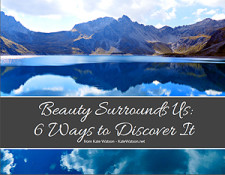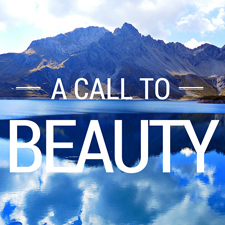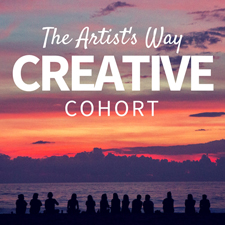 Most of us don’t have the kind of addictions you hear about on the news, the ones celebrities get sent to rehab for, the ones recognized as life altering or capable of destroying families and ruining lives. No, our addictions are more subtle and, you might argue, even inconsequential: caffeine, tobacco, or sugar.
Most of us don’t have the kind of addictions you hear about on the news, the ones celebrities get sent to rehab for, the ones recognized as life altering or capable of destroying families and ruining lives. No, our addictions are more subtle and, you might argue, even inconsequential: caffeine, tobacco, or sugar.
“Did she really just say sugar?,” you might be asking. Yep, that’s what I said. And not only did I suggest that sugar is an addiction, I’m going to further argue that sugar is actually a dangerous, life-altering kind of addiction that you might want to learn to control. Before you roll your eyes and sign off, give me a chance.
First, is sugar a drug? Ask yourself these questions: Do you crave it? Do you feel compelled to eat a cookie or have a muffin or drink a coffee mocha more than you, say, want broccoli or lentils or some other delicious vegetable or protein source? We all know the answer is yes. Next, does it alter your mood? Do you feel better after having it? Do you get a little rush, feel a little happier, experience a little zing? If you won’t be honest on that one for yourself, look at what sugar does to your kids. For every child I’ve known, there is a marked difference in behavior before sugar and after sugar. The only reason you don’t bounce off the ceiling after sugar is that your body is more accustomed to metabolizing it, particularly if you eat it regularly. And Americans eat a lot of it, even when we don’t intend to. Manufacturers have loaded sugar into packaged foods, including those that claim to be healthy, in the form of glucose, sucrose, fructose and the notorious high fructose corn syrup (HFCS).
Now you might be saying, “Kate, there’s a difference between ingesting sugar and being addicted to it.” You’re right, there is. It’s a matter of degree. Do you know how much sugar you eat? According to the US Department of Agriculture, the average American consumes 156 pounds of sugar per year! No wonder we’re fat! Sugar and sugar substitutes are in everything these days: cereal, bread, crackers, frozen meals, sauces, ketchup, flavored “water” and other beverages; you name it. Read the labels in your pantry and fridge. Now that you’ve noticed, can you stop eating sugar? Try it. Go 24 hours without consuming any sugar. That’s right, zero sugar. Can you do it? What about for one week? Two or three servings of fresh fruit per day (not juice) are okay, but that’s it. How do you feel? If you can last one week without sugar and still feel great, congratulations! Looks like you’re in the clear. If you can’t last one week, feel like crap, or are fussing at everyone who crosses your path, welcome to the sugar addict club.
Two years ago, I never would have admitted to being a sugar addict. And yet, looking back, I now see that I was. I had a bowl of ice cream most evenings, I ate according to my cravings, and my diet included packaged foods that assured me they were healthy, but that I now know contain hidden sugar. I was overweight and frustrated, although I told myself that I was doing everything I could to “be good.”
All of that changed when Brian and I took a healthy eating workshop with Damon Miller, MD, a board-certified physician and naturopathic doctor in Palo Alto. Through the class, we participated in a detox program to first remove common food allergens from our diet and then add them back, assessing how those foods impacted our physical and mental health.
We learned a lot about how our bodies interact with food during the process, which I may share in a future post. What’s relevant now is that we both realized that we have a negative reaction to sugar. Brian has an allergy-like response, including mouth and ear itching. I occasionally show similar symptoms, but more frequently get a minor headache and cotton mouth. The main difference for me is that if I have too much sugar, I start to crave more. And if I deny myself or feel deprived, “Sugar Demon” emerges.
According to Brian, Sugar Demon is “snarly, moody, angered by everything, satisfied by nothing, desiring of addictive treats and self-loathing for wanting them. I don’t like her much at all,” he says, “and I want my real wife back.” He adds that, when I had sugar more regularly, the cause and effect wasn’t clear: Some days I was calm and sweet; some days I was irritable. Now that I’m away from sugar most of the time, the cause and effect has become much more apparent.
Another byproduct of sugar I didn’t understand before the workshop is its ability to alter my “hungry” and “full” signals. For much of my life, I’ve had trouble distinguishing between hunger and craving. I blame growing up in the low-fat age, when healthy fats were reviled and all of our diets became ladened with sugar as a flavor substitute. What I’ve since learned is that there is a big difference between the craving signal and the hungry signal. When you’re hungry, for example, your stomach actually rumbles. It’s not just that you feel like eating or feel nauseated from low-blood sugar. Lightbulb moment, huh? Maybe not for all of you, but it was profound for me. Refined sugars, particularly HFCS, have also been shown to block hormonal signals that tell us we’re full, causing us to eat more than we need. Of course, food manufacturers are happy about this. It leads to more consumption. In fact, despite significant evidence of the dangers of HFCS and resulting bad press, its producers are petitioning for a name change instead of removing it from our diets.
You may think you’re being good by drinking diet soda, eating low-fat or even choosing “sugar-free” items, but you’d generally be wrong. Studies show that just one soda per day, either full sugar or diet, is linked with weight gain. Many low-fat or “sugar-free” products contain sugar substitutes that mirror the body’s physiological response to sugar. When it comes to healthy eating, it’s buyer beware.
I think I’ve proven the addictive quality of sugar and some of the byproducts of sugar addiction, but you may still be skeptical about how serious a health risk it really is. Although the media and some doctors still blame fat for our nation’s three most-common disease-related deaths—heart disease, cancer and diabetes—studies dating as far back as the 1960s show that sugar is the real culprit. I think the linked article is sufficient evidence of why you should care, but if not, how about my anecdotal support.
We don’t have a scale on the road, but I know I’m currently at my lowest weight since college. I’m shrinking out of my clothes, my arms and face are thinner, and you can see my collar bones for the first time since 1995. I also have fewer problems with moodiness, feel less stressed and healthier, except when I consume sugar. I still have occasional battles with sugar—after all, we can’t always eat perfectly while traveling—but each one furthers my resolve to be strong. I’ve noticed all kinds of side effects from sugar since becoming more aware, including swelling and a direct correlation between eating sugar and decreased immune function. But don’t take my word for it! I’m not a doctor, registered dietitian or nutritionist.
Even Dr. Miller encourages you to try out a detox program for yourself and come to your own conclusions. If you’re interested, Ann Louise Gittleman’s Fat Flush Plan is a good book. I also enjoyed Beat Sugar Addiction Now! by Jacob Teitelbaum, MD, whom I met in Hawaii.
I would love to hear your thoughts. Are you a sugar addict? Did you know HFCS was in tons of packaged food items? Have you tried one-day or one-week sugar detoxes? How did it go?

















My Pillars of Happiness » KateWatson.net - […] Hubby and I took a healthy eating workshop in 2009. It started with an elimination diet, where we removed common allergens from our diet for several weeks and then examined how we felt as we added them back slowly and methodically. From the workshop, the hubs determined that he has a dairy sensitivity (this has subsequently been verified by testing) and I determined that eating refined sugar was painful. […]
Kate - Hi Gwyn: It sounds like you’re already doing great! Good luck with the next step. A square of dark chocolate every once in a while won’t hurt you. 🙂
Gwyn - We try to eat healthy in our house. I read the labels on everything or almost everything that comes in the house and try to avoid everything with HFCS, and hydrogenated oils. I haven’t had a soda in over four years and don’t miss it. Labor Day weekend I decided to avoid all fried foods. I’ll be honest, I miss potato chips, but we make baked ones in the oven that are pretty good. I think I should try to avoid sugar next. I love chocolate. It will be hard.
Kate - Thanks, Sherry! Isn’t it strange that healthy foods like raw vegetables are more expensive than pre-cooked fast food in the States? That’s why obesity is such a problem in poorer neighborhoods. I think sugar can be had in moderation once you break the cycle of addiction, but I still tend to avoid it most of the time. PS, Cute photo on FB!
Sher - Very good article Kate. I’m addicted to sugar, and when I have the money for the right foods, I can avoid it better but nowadays . . . . I stayed away completely for 6 weeks when I did my Slim in 6 program. Well, that’s a lie – I had one jelly bean and in group that night (Substance Abuse group), I owned up to it.
Kate - Hi Patricia: We had heard that about sugar in our healthy eating class as well. I look forward to the days when I no longer crave sugar. How long did it take before that happened for you? Happy Holidays!
Kate - I completely agree, Jen! Although there is plenty of sugar to be found in New Zealand and Australian foods, at least we don’t have to worry about pure “evil.” Thanks for your comment!
Skmrorer - Unfortunately, all of what you say is true and I can’t remember when I didn’t have sugar in my diet 24/7 and believe you me my body knows it. I’m a whopping 158 lbs and wish I was back to my 125 in the good ole days, ah, youth. Maybe while I’m there I can get back some of my former days. Let’s try.
Prlasen - As a cancer survivor who was treated with both traditional and non-traditional methods, I learned that sugar feeds cancer. I gave it up for good and fortunately for me I don’t crave sugar any more, in fact, I don’t like anything sweet any more. Maybe to my detriment, even fruit is too sweet for me. Of all the changes I made after having cancer, I believe the one best thing I did was give up sugar.
Jen Muehlbauer - HFCS is referred to as “Evil” in our house, as in, “read the ingredients list to make sure it doesn’t have Evil in it.” It’s SO much easier to eat right (in general) outside the US.